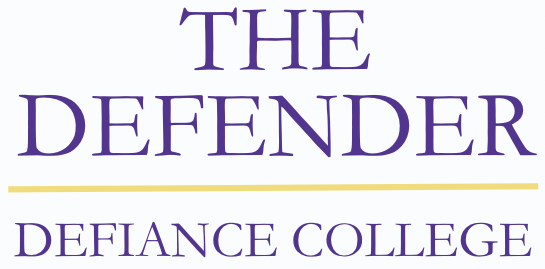DC Athletes and Coaches on Supplementation
Defiance College employees and student-athletes are weighing in on the dangers of supplementation when it comes to athletes.
Reed Guerin, an admission counselor at Defiance College and a Certified Strength and Conditioning Specialist, discusses some of his opinions when it comes to supplementing and collegiate athletes. Guerin stated that he does not find supplements to be “essential” to athletic performance in collegiate athletics. Guerin discussed some of the biggest issues that he finds when it comes to student-athletes and their supplementation. He discusses the “importance of knowing what you’re putting in your body”. Guerin stated that the best “supplements” student-athletes can use and place emphasis on are hydration, food, and sleep. By taking care of the body in these three things, the student-athlete will see better results in their athletic performance.
Head softball coach and Certified Strength and Conditioning Specialist Megan Warren stated that her biggest fear when it came to student-athletes and supplements is that “student-athletes might fail a drug test because they took a supplement thinking it was okay and it had an illegal substance in it. The supplement industry isn’t regulated so this happens more than people think”.
Students shared differing opinions on the issue.
Mason Rapp, a senior integrated social studies and history major stated that “as long as they aren’t steroids, I don’t care”.
Makenzie Wilson, a freshman nursing major, states that even though she “doesn’t do it, she doesn’t see a problem with supplementing athletes, assuming the supplements being used are legal and safe for the athlete”.
“It’s stupid and a waste of time. During 5 a.m. practices, the teammates who supplemented themselves prior to practice are hyper for practice and then fall asleep in class”, stated sophomore integrated math major, Hali Geraci.
One student voiced concerns regarding the supplements she was instructed to take by an online trainer. Erin Breece, a sophomore sports management major, stated that “certain supplements have side-effects that can cause major damage if not taken correctly. For example, I was told to take creatine and pre-workout. They didn’t make me feel any better athletically instead, I felt bloated and itchy”.
Finally, sophomore exercise science and psychology major Zach Johnson recognizes that supplementation is not essential if the student-athlete is eating and hydrating in the correct ways. Johnson added that “as long as student-athletes are being smart about it and taking the time to make sure the substance isn’t on the NCAA’s banned list, I don’t see a problem with people taking them”.
The NCAA publishes and updates a list of banned substances for student-athletes each year. This list includes substances such as stimulants, anabolic agents, diuretics, and street drugs. While the NCAA does publish an extensive list, it is still the responsibility of the student-athlete to pass a drug test. To view the list, visit http://www.ncaa.org/2018-19-ncaa-banned-drugs-list.
Written by Jordan Osborne
